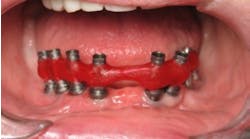Getting paid for signing an agreement not to compete: The 'garden leave' alternative
The information-based economy has yielded to increased job mobility. Modern dentists—like modern professionals in general—are unlikely to spend their career with a single practice or firm. As a result, there has been an upsurge in noncompete agreements, otherwise known as “covenants-not-to-compete,” found in employment agreements. Employers capitalize on employees’ unequal bargaining power early in the employment relationship by having employees enter into such agreements.
Generally, in a covenant-not-to-compete, a dentist agrees not to compete with his or her employer within a certain geographic region for a specified length of time at the end of the employment relationship. When an employee decides to part ways from his or her employer, a broad and overreaching noncompete clause may discourage the employee from testing the agreement’s validity. Depending on the jurisdiction, employers may risk nothing by incorporating an overreaching noncompete clause into an employment contract, because the clause might be refined by the court to make the restriction more reasonable instead of striking the entire clause as void.
ALSO BY EVAN MILES GOLDBERG |Noncompete agreements and the modern dentist
The question arises regarding how a dentist can address a noncompete clause found in his or her employment agreement early in the employment relationship.
A device that a dentist entering a new practice can negotiate into his or her employment contract stems from a British tradition called the “garden leave” agreement. In such an agreement, an employee is restricted from certain work while simultaneously remaining on the payroll. An employee agrees to give his or her employer at least six months notice of departure from the practice, and the employer agrees to pay the employee during that time (the “garden leave” period).
A garden leave agreement is advantageous to the employer because the employer gets the same protection it would normally get under a noncompete agreement: The employee is restricted from working elsewhere during this period, and the employee’s future employment prospects (and competition) might dry up during that time.
ADDITIONAL READING |Introduction to noncompetition and nonsolicitation agreements for dental professionals
A garden leave agreement is advantageous to the employee because the employer bears the economic burden of preventing the employee from working elsewhere. While the employer can choose not to assign any duties to the employee during the garden leave period, the employer must still continue to pay the employee his or her salary or agreed-upon garden leave amount.
The garden leave agreement is a great tool for a dentist to negotiate into an employment agreement because it makes the employer recognize the cost it will have to bear regarding restricting the employee from working elsewhere, as well as the length of time the employer is willing to restrict the employee’s post-employment activities.








